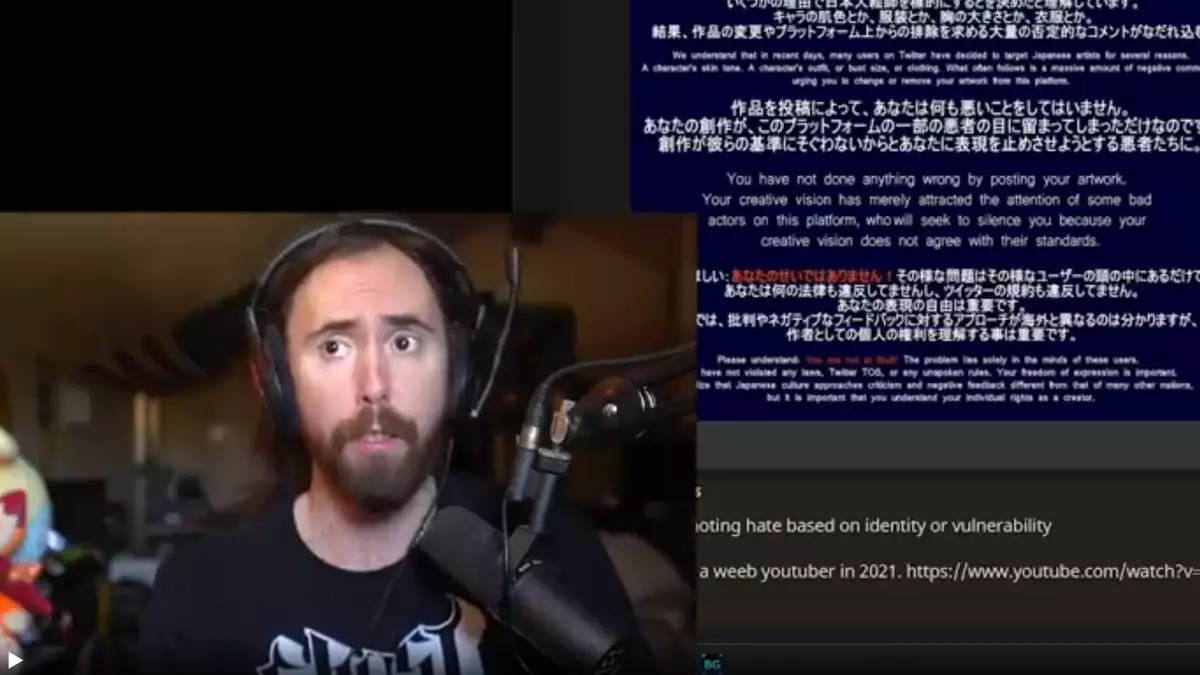In recent years, Twitch has emerged as one of the leading platforms for live streaming, bridging the gap between gamers and viewers around the world. With the increase in popularity, however, comes the responsibility for streamers to uphold community standards and promote a welcoming environment. This is especially relevant in conversations surrounding contentious global situations, where perspectives can become toxic and divisive. A recent incident involving popular Twitch streamer Zack Hoyt, better known as Asmongold, serves as a poignant example of this reality.
Unpacking the Incident: A Streamer’s Rhetoric
During a recent livestream, Asmongold made inflammatory comments concerning the Israeli-Palestinian conflict, openly expressing a blatant disregard for the loss of life in Gaza. His remarks included highly charged language labeling Palestinians as “terrible people” and characterizing their culture as “inferior.” Such statements are not just deeply hurtful; they also harbor the potential to incite further discord among viewers.
Asmongold’s comments aligned with the criteria for hate speech, as outlined in Twitch’s community guidelines, which prohibit hateful and prejudiced behavior. By asserting that Palestinians have “genocide built into Sharia law,” he perpetuates harmful stereotypes that can contribute to a cycle of misunderstanding and hatred. The situation escalated further when his remarks were clipped and widely disseminated on social media, igniting outrage and calls for accountability.
Following a wave of criticism following his comments, Asmongold issued an apology via X (formerly Twitter), claiming, “Looking back on it, I was way too much of an asshole about the Palestine thing.” This statement, while an acknowledgment of the controversy, struck many as insufficient. Community reactions reveal a growing discontent with mere apologies that lack deeper reflection and substantive change.
In today’s digital landscape, where platforms amplify both voices of reason and those that perpetuate division, the burden rests not only on the individual streamer but also on the larger community and the platforms themselves to create an environment that discourages intolerance. Apologies should ideally follow a process of genuine introspection, rather than becoming mere public relations gestures.
The Role of Platforms in Addressing Toxicity
Twitch, along with other social media platforms, has a responsibility to enforce guidelines that promote a diverse and inclusive environment. Through its ban on Asmongold’s secondary channel, Twitch made a statement regarding accountability for its streamers’ actions. However, critics argue whether a temporary ban is enough to combat the pervasive issue of hate speech in online communities.
Implementing systematic changes, such as education on cultural sensitivity and harsher penalties for hate speech, could potentially foster a more respectful discourse within the Twitch community. Streamers often wield immense influence over their audiences, making it critical for them to understand the implications of their words and the values they promote.
As social media platforms facilitate the dissemination of ideas—both constructive and harmful—the risk emerges that hate speech could become normalized if left unchallenged. Asmongold’s tirade against Palestinians is emblematic of a broader issue where powerful voices can trivialize suffering and perpetuate stereotypes without facing immediate repercussions.
These scenarios pose ethical dilemmas for audiences: Should they support creators who espouse harmful views? Can a mere apology suffice to mend the damage caused?
The incident involving Asmongold highlights the ongoing challenges in the digital realm: creators wield great influence but also bear serious responsibilities. It is incumbent upon streamers to foster environments where empathy prevails over hatred. As the discourse continues surrounding this controversy, the Twitch community and other social platforms must evaluate their frameworks for handling toxic behavior and strive toward a future where all voices can coexist respectfully, free of fear or discrimination. The journey towards change requires not just awareness but also collective action, self-reflection, and accountability from all involved.

